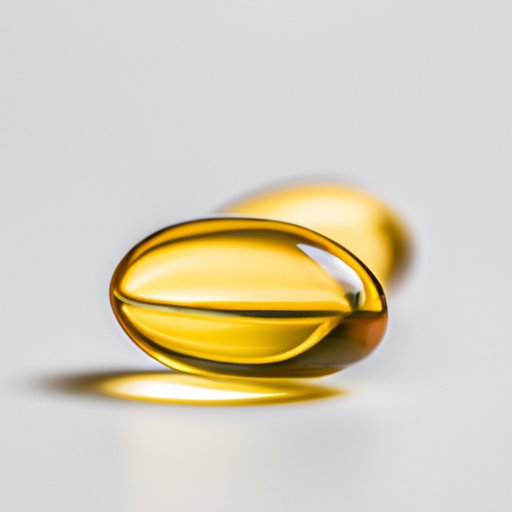
I. Introduction
Scars are a common concern for many people, whether they are the result of an injury, surgery, or acne. While some scars may fade over time, others can linger and cause self-consciousness or discomfort. As a result, people have been on the search for effective remedies. One solution that has gained popularity in recent years is vitamin E oil. In this article, we will explore whether vitamin E oil can really help with scars, separating fact from fiction.
II. Exploring the Potential Benefits of Vitamin E Oil on Scars
Vitamin E oil is a fat-soluble antioxidant that is naturally found in many foods. It is also available as a supplement and in skincare products. Proponents of vitamin E oil for scar healing suggest that it can hydrate the skin, reduce inflammation, and promote the growth of new blood vessels and skin cells.
Historically, vitamin E oil has been used for scar healing. During World War II, it was applied topically to burn victims to help with scarring. Since then, it has remained a popular remedy for scars and is often found in over-the-counter scar treatment products.
III. The Science of Vitamin E Oil: Can it Really Improve Scarring?
There have been several medical studies and clinical trials conducted to explore the potential benefits of vitamin E oil on scars. However, the conclusions are mixed, and experts are still divided on whether vitamin E oil can really improve scars.
The mechanism of action for vitamin E oil on scars is not entirely clear. It is believed that it may help reduce inflammation, which can contribute to the formation of scar tissue. Additionally, it may help with collagen production, which is essential for healthy skin regeneration.
A review of evidence-based research conducted by the National Institutes of Health concluded that there is insufficient evidence to support the use of vitamin E oil for scar healing. Some studies have even suggested that it may be harmful to use vitamin E oil on scars, as it can disrupt the healing process and cause allergic reactions.
IV. Common Misconceptions About Vitamin E Oil and Scar Healing
There are several myths about vitamin E oil and scar healing that have persisted over the years. One of the most common is that vitamin E oil can prevent scars from forming. However, this is not backed up by scientific evidence. In fact, applying vitamin E oil to a fresh wound may actually hinder the healing process.
Another myth is that vitamin E oil can help improve the appearance of older scars. While some people may report positive effects, there is not enough evidence to support this claim. Additionally, some people may be allergic to vitamin E oil, which can cause further irritation and redness.
V. Comparing Vitamin E Oil to Other Scar-Reducing Products
There are many other remedies and products available for scar healing, such as silicone sheets, corticosteroid creams, and onion extract. One advantage of vitamin E oil is that it is relatively affordable and widely available. Additionally, it is a natural remedy that does not contain harsh chemicals.
However, one limitation of vitamin E oil is that it may not be effective for all types of scars. For example, hypertrophic scars and keloids, which are raised and thick, may not respond well to vitamin E oil. In these cases, a dermatologist may recommend other treatment options.
VI. Personal Testimonies and Experiences with Vitamin E Oil on Scars
There are many personal testimonies and experiences with using vitamin E oil on scars. Some people have reported positive effects, such as softer and smoother skin, while others have reported no change or negative effects, such as increased redness and irritation.
If you are considering using vitamin E oil on your scars, it is important to do a patch test first to check for any allergic reactions. Additionally, it is recommended to speak with a dermatologist before trying any new scar treatment.
VII. Conclusion
While vitamin E oil has been used for scar healing for decades, the scientific evidence is still inconclusive. While some people may experience positive effects, others may not see any change or even experience negative effects. As a result, it is important to approach vitamin E oil with caution and speak with a dermatologist before using it on your scars. Other scar treatment options may be more effective, depending on the type and severity of the scar.




